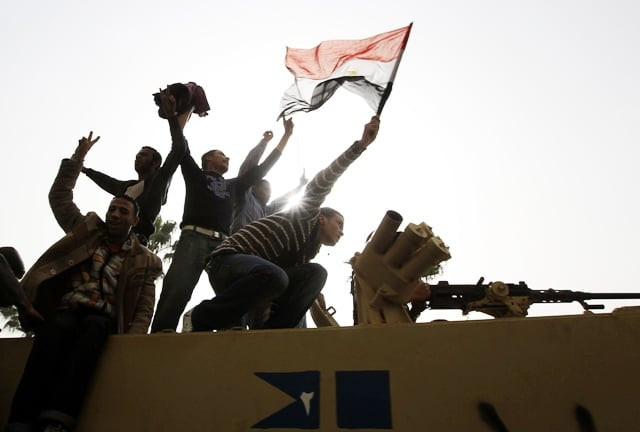Unrest in Egypt: Mubarak names vice president and premier
Military intelligence chief appointed Mubarak's first-ever vice president.

Egyptian President Hosni Mubarak rung the changes on Saturday naming a vice president for the first time since he came to power in 1981 and picking aviation minister, Ahmed Shafiq, as the next prime minister. Intelligence chief Omar Suleiman was sworn in as vice president on Saturday, state news agency Mena reported.
The moves were announced hours after Mubarak, 82, sacked the government amid massive anti-regime protests. It indicates for the first time a possible succession plan and also suggests Mubarak’s son, who has long rumoured to be a potential leader, has been pushed out of the picture. Mubarak is unlikely to run again in the planned September presidential elections, when officials had suggested he would stand. Omar Suleiman, 74, has long taken a close role in key policy areas.
It was not clear if protesters would welcome a move that keeps control in the hands of the military and security institutions. “He is just like Mubarak, there is no change, ” a protester told Reuters outside the interior ministry, where thousands were protesting, moments after the appointment. There are no plans for early elections, the speaker of parliament said on Saturday, al Arabiya television reported. The presidential election is due in September.
The US State Department appeared to criticise the change, saying the Egyptian government cannot simply “shuffle the deck and then stand pat.” “President Mubarak’s words pledging reform must be followed by action, ” a State Department spokesman said, echoing US President Barack Obama’s call for reforms by the Egyptian president. The European Union meanwhile urged Egypt to free peaceful protesters immediately. The army earlier called on Egyptians to abide by a curfew amid reports of looting, attacks and ransacking of public buildings during anti-government protests, a defence ministry spokesman said on Saturday.
He warned in a statement that the state will act “firmly” against violators. At least 73 people have been killed across Egypt and thousands injured in anti-government riots since Friday, according to medics. At least 62 people were killed on Friday and 11 on Saturday, and thousands injured in clashes between protesters and police, in unprecedented rallies demanding Mubarak’s ouster.
Egyptians armed with sticks and razors have formed vigilante groups to defend their homes from looters after police disappeared from the streets following days of violent protests. Banks, junctions and important buildings previously guarded by the police and state security were left abandoned on Saturday and civilians have quickly stepped in to fill the void. Some 60 per cent of Egypt’s police stations reportedly have reportedly been torched by angry demonstrators.
“There is no police to be found anywhere, ” said Ghadeer, 23, from an upscale neighbourhood. “Doormen and young boys from their neighbourhoods are standing outside holding sticks, razors and other weapons to prevent people from coming in.” Police withdrew from the streets when the army was sent in to take over security in Cairo. Witnesses have since seen mobs storming supermarkets, commercial centres, banks, private property and government buildings in Cairo and elsewhere.
Egyptians have called for army intervention to bring back law and order. Clashes broke out between police and prisoners attempting to escape from a Cairo prison on Saturday, a security source said. None of the prisoners managed to escape, but eight were killed and 123 were wounded in the clashes at Abu Zaabal prison, northeast of Cairo, the security source said.
Published in The Express Tribune, January 30th, 2011.



















COMMENTS
Comments are moderated and generally will be posted if they are on-topic and not abusive.
For more information, please see our Comments FAQ